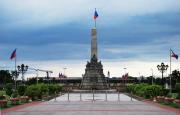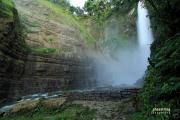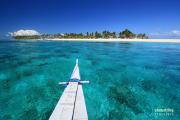Bicol University (BU) is a state university in Legazpi City. Administered from Legazpi, Bicol University offers 67 degree programs with varying number of specializations spread into 14 academic units: Agriculture and Forestry (CAF) in Guinobatan; Education (CE) in Daraga; Engineering (CENG) and Industrial Technology (CIT) in EM's Barrio, also referred as the East Campus; Polangui Campus (PC) in Polangui, Albay; Tabaco Campus (TC) in Tabaco, Albay; and across the Legazpi main campus are the Graduate School (GS); Science (CS); Arts and Letters (CAL); Social Sciences and Philosophy (CSSP); Business, Economics and Management (CBEM); Nursing (CN); Open University (OU); and the Institute of Physical Education, Sports and Recreation (IPESR).
Vision and Mission
Vision: A University of Excellence characterized by scholarship engagement for the community towards sustainable development.
Mission: The vision is rooted in Bicol University's mandate as provided in RA 5521 which is "to give professional and technical training and provide advance and specialized instruction in literature, philosophy, the sciences and arts, besides providing for the promotion of technological researches, (Sec.30). Hence, graduates of the Bicol University shall be distinguished by their industry, nationalism and integrity. Along this line, extension service to the community and resources generation through its various productive endeavors shall complement the University's mandated instruction-research-function.
History
Formation
Bicol University was created as a state university in the Bicol Region on June 21, 1969 by the Republic Act 5521 and formally organized only on September 22, 1970. Section 2 of the Republic Act 5521 formalized the BU's existence by merging of the following schools to form integrated units of the university:
- The Bicol Teachers College (BTC) with its Laboratory School in Daraga, Albay, now the BU College of Education (BUCE) with its Laboratory School
- The Daraga East Central School (DCES) also in Daraga, Albay, initially renamed as Bicol University Pilot Elementary School (BUPES), is now fused with the BUCE Laboratory School.
- The Albay High School also in Legazpi, now BUCE Laboratory School
- The Bicol Regional School of the Arts and Trades (BRSAT) converted from the Albay Trade School, also in Legazpi City, by virtue of Republic Act 1129 on June 16, 1954, is now the College of Industrial Technology and the College of Engineering.
- The Roxas Memorial Agricultural School (RMAS) opened collegiate courses on June 18, 1949 in Guinobatan, Albay, became the College of Agriculture; and now known as the College of Agriculture and Forestry.
- The School of Fisheries in Tabaco, Albay became the College of Fisheries, now the University Tabaco Campus.
- The School for Philippine Craftsmen in Polangui, now the Bicol University Polangui Campus.
These public schools and colleges, now part of Bicol University, have trained and educated the people of Bicol for more than half a century prior to their integration as component units of the Bicol University.
Campuses
- Main Campus
Located in Legazpi City along the national highway, Rizal St. Aside from the Administration Building, this campus hosts the College of Education (BUCE), College of Nursing (BUCN), College of Arts and Letters (BUCAL), College of Science (BUCS), Graduate School (BUGS), Institute of Physical Education, Sports and Recreation (IPESR), Bicol University Integrated Laboratory School (BUILS) High School Department. The Bicol University Research Extension Program Center (BUREPC), the Amphitheatre and the Little Theater are also found in this campus.
- Legazpi East Campus
Located in Enlisted Men's Barrio (EM's Barrio) also in Legazpi City, this campus hosts the College of Engineering and College of Industrial Technology.
- Daraga Campus
Located in Daraga, Albay, this campus consists of the College of Social Sciences and Philosophy (CSSP) and College of Business, Economics and Management (CBEM). This campus was formerly called College of Arts and Science (CAS).
- Tabaco Campus
Located in Tayhi, Tabaco, Albay. Courses offered in this campus are Bachelor of Science in Nursing, Food Technology, Social Work, Fisheries and Aquaculture, Marine Fisheries, Fish Technology, Coastal Resource Management, Secondary Education, and Entrepreneurship.
- Guinobatan Campus
Located in Pan-Philippine Highway in the town of Guinobatan, Albay, formerly known as Guinobatan Rural High School in 1927; Roxas Memorial Agricultural School in 1950; Bicol University College of Agriculture (BUCA) in 1969 through RA 5521; with the offering of Bachelor of Science in Forestry starting in 1991, is now known as the Bicol University College of Agriculture and Forestry (BUCAF). BUCAF is a member of Philippine Agroforestry Education and Research Network (PAFERN).
- Polangui Campus
Located in Centro Occidental, Polangui, Albay, this was formerly known as the School for Philippine Craftsmen and offered vocational courses. It was integrated into Bicol University, through R.A. 7722, R.A. 8292 & R.A. 8769, on December 14, 2000 and renamed as Bicol University Polangui Campus. From the five courses offered in 2000, it now offers fifteen courses including BS in Nursing, BS in Computer Engineering and BS in Electronics and Communications Engineering.
- Gubat Campus
Located in Gubat, Sorsogon, this campus offers Bachelor's degrees in Agricultural Technology, Secondary and Elementary Education, Fisheries, Food Technology, Entrepreneurship, Peace and Security Studies and Computer Science are offered in this campus.
Getting there
By Air
Airlines from Manila have daily schedule flights from Legazpi City to Manila and vice versa.
- Manila to Legazpi City
- Legazpi City to manila
By Land
Several aircon tourist bus companies ply the Manila-Legazpi route daily, an average nine-hour travel time, passing through scenic roads.
By Rail
By train, the average travel time is 16 hours via the Philippine National Railway, the country’s sole train transport service.
By Sea
Several shipping lines offer regular trips from the Visayan region to the island province of Masbate to Albay via mini ports of Pilar and Donsol, Sorsogon.
Getting Around
Buses and jeepney’s are generally the main mode of transportation in getting around Albay’s destinations. Pedicabs and tricycles are also available for short distance travels. Taxis and rent-a-cars are also available.










